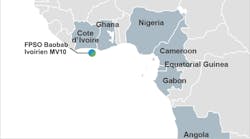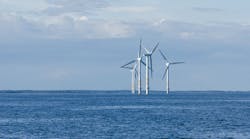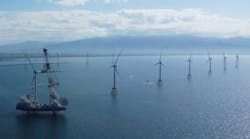In November 1970, two remarkable petroleum milestones were set. The US pumped a record 10 million b/d of oil, all from the lower 48 states. While it was not appreciated at the time, this turned out to be peak production for the US. From 1970 onward, US oil production continuously fell, even after the world's third largest daily producing oilfield, Prudhoe Bay, came onstream in 1978.
In March 1971, for the first time in a quarter of a century, the Texas Railroad Commission allowed all-out production of Texas' oil output. This meant the worldwide oil system was finally at 100% capacity for the first time since the early 1930s. From this point onward, all incremental US oil demand had to be met by imported petroleum. Imports, as a share of total US oil consumption, rose sharply from 19% in 1967 to 36% by 1973.
No one paid much attention to the Mideast oil producers in the first three-quarters of 1973. The Organization of Petroleum Exporting Countries (OPEC) was created in 1960, but it had no power and its members were all considered part of the little understood 'Third World.' These early years were unhappy times for OPEC producers.
These countries had to tolerate "big oil" dictating what they received for their product. Oil prices were so low that none of these countries had any real wealth. In fact, most were still among the poorest countries on the globe, although they were creating the product most responsible for the great prosperity that fueled the 'Free World' (Matthew Simmons of Simmons & Company International).
Much has changed over the last 30 years. In less than a generation, Arabian Gulf petroleum represents 23.3% of total US imports (DOE). Total US imports in June as a percentage of total domestic petroleum deliveries were 58.7% (API). Non-US petroleum producers have learned the power of their oil exports and have learned to control, to a degree, that power.
Service companies too
The business of oil production is more international than ever, and the service companies must be equally so. Certain nations legislate a majority ownership interest in every well produced in their waters. As part of that ownership, they also have the power to dictate the 'national content' of labor and materials on those projects. Content requirement has a direct and immediate impact on construction service providers.
At what point does an organization switch from being perceived as a 'foreign company,' operating with indigenous personnel, to a 'local company?' What level of capital and technological investment by an organization is required before they are identified as indigenous or local? Global Industries opened their first international office in 1995 in West Africa with Global Offshore International. Today, the local content in West Africa consists of over 90% indigenous personnel. Still, Global faces 'local content' issues. Global Offshore Mexico was begun in 1999.
Today, it consists of 86% indigenous personnel, yet is perceived in Mexico to be a US company. Global Offshore Mexico pays taxes, invests in the community, and the firm's employees pay taxes and reinvest into their communities, yet Global Offshore Mexico is sometimes perceived as a foreign company and is not included in local content calculations for service contracts. Global Offshore Mexico operates three Mexican-flagged vessels in the Bay of Campeche, yet does not always receive credit for local content.
Risks shifting
In 1973, the major oil companies were able to dictate terms to the oil producing countries. In many cases, oil companies were able to borrow money to finance their projects at rates lower than the local governments. Contracts for oil and gas were stable enough to allow long term pricing. The risks associated with financing were geopolitical and geological. Today, those risks have shifted to fluctuations in price and locating a cost-effective infrastructure to deliver goods and services reliably and efficiently to the site.
As we come to the last quarter of 2001, national companies are being pressured to show greater percentages of 'national content,' and they fail to realize that many service providers are committed to their countries, to the region, and to the success of the industry. Globalization is not only about oil production, but also about financing international development.
Contractors are developing the infrastructure internationally that will ensure the future success of the industry in each region. Companies such as Global are continually working with the national governments and local businesses to develop an improved infrastructure and relationships to improve the delivery of services they provide.
This page reflects viewpoints on the political, economic, cultural, technological, and environmental issues that shape the future of the petroleum industry. Offshore Magazine invites you to share your thoughts. Send your manuscript to Beyond the Horizon, Offshore Magazine, Box 1941, Houston, TX 77251 USA. Manuscripts will not be returned.




